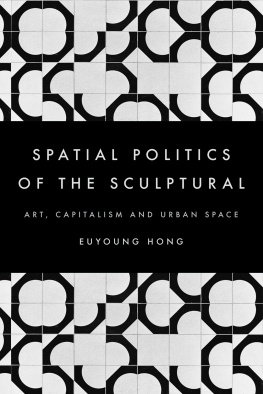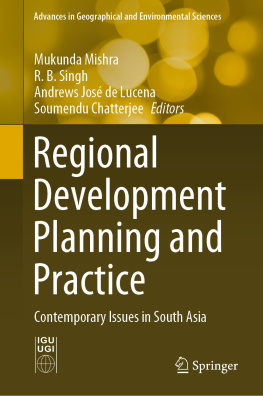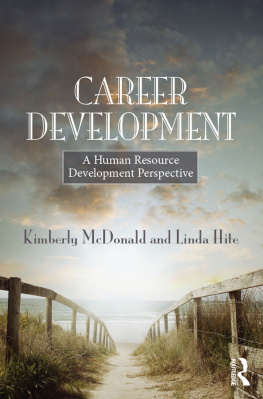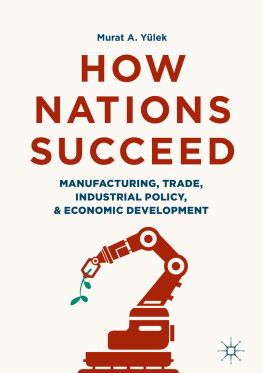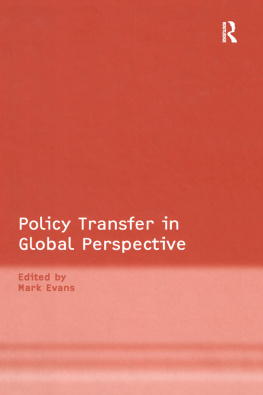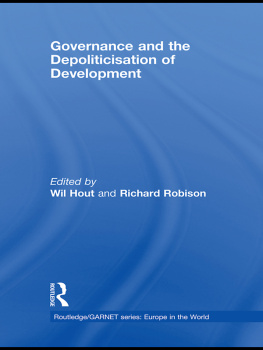ROUTLEDGE LIBRARY EDITIONS: HUMAN GEOGRAPHY
Volume 14
THE DEVELOPMENT PROCESS
THE DEVELOPMENT PROCESS
A spatial perspective
AKIN L. MABOGUNJE
First published in 1980 by Hutchinson & Co. (Publishers) Ltd
This edition first published in 2016
by Routledge
2 Park Square, Milton Park, Abingdon, Oxon OX14 4RN
and by Routledge
711 Third Avenue, New York, NY 10017
Routledge is an imprint of the Taylor & Francis Group, an informa business
1980 Akin L. Mabogunje
All rights reserved. No part of this book may be reprinted or reproduced or utilised in any form or by any electronic, mechanical, or other means, now known or hereafter invented, including photocopying and recording, or in any information storage or retrieval system, without permission in writing from the publishers.
Trademark notice: Product or corporate names may be trademarks or registered trademarks, and are used only for identification and explanation without intent to infringe.
British Library Cataloguing in Publication Data
A catalogue record for this book is available from the British Library
ISBN: 978-1-138-95340-6 (Set)
ISBN: 978-1-315-65887-2 (Set) (ebk)
ISBN: 978-1-138-99847-6 (Volume 14) (hbk)
ISBN: 978-1-315-65848-3 (Volume 14) (ebk)
Publishers Note
The publisher has gone to great lengths to ensure the quality of this reprint but points out that some imperfections in the original copies may be apparent.
Disclaimer
The publisher has made every effort to trace copyright holders and would welcome correspondence from those they have been unable to trace.
The Development Process
A spatial perspective
Akin L. Mabogunje
HUTCHINSON UNIVERSITY LIBRARY FOR AFRICA
Hutchinson & Co. (Publishers) Ltd
An imprint of the Hutchinson Publishing Group
1721 Conway Street, London W1P 5HL
Hutchinson Group (Australia) Pty Ltd
3032 Cremorne Street, Richmond South, Victoria 3121
PO Box 151, Broadway, New South Wales 2007
Hutchinson Group (NZ) Ltd
3234 View Road, PO Box 40-086, Glenfield, Auckland 10
Hutchinson Group (SA) (Pty) Ltd
PO Box 337, Bergvlei 2012, South Africa
First published 1980
Reprinted 1981
Akin L. Mabogunje 1980
The paperback edition of this book is sold subject to the condition that it shall not, by way of trade or otherwise, be lent, resold, hired out, or otherwise circulated in any form of binding or cover other than that in which it is published and without a similar condition including this condition being imposed on the subsequent purchaser
Set in Pacesetter Times Roman
Printed in Great Britain by The Anchor Press Ltd
and bound by Wm Brendon & Son Ltd
both of Tiptree, Essex
British Library Cataloguing in Publication Data
Mabogunje, Akin Ladipo
The development process.
1. Africa Economic conditions 1945
2. Underdeveloped areas Economic conditions Case studies
3. Geography, Economic Case studies
I. Title
330.96HC502
ISBN 0 09 141340 0 cased
0 09 141341 9 paper
Contents
All over the Third World, the development process is the cause of great concern. In country after country, development planning has created conditions for a substantial proportion of the population which are far from satisfactory or dignifying. Evidence of acute deprivation and almost inhuman degradation is sharply presented everywhere, both in urban and rural areas. Their conditions stand out most sharply because of the presence of a minority of really wealthy individuals concentrated particularly in the metropolitan centres. The depressing economic conditions of the masses have been compounded by physical disasters such as droughts, floods and earthquakes.
Although this gloomy picture is relieved to some degree in certain countries, especially in Latin America and South-East Asia, there can be no doubt that it has provoked a serious reappraisal of ideas and thoughts about the development process. Incisive analysis of the victims and beneficiaries of the current strategies of development are becoming common. New and alternative approaches are being presented in the literature. One of the reassuring aspects of this recent intellectual activity in the development field is an increasingly vigorous participation of scholars of the Third World who in their daily lives experience the realities of some of these harsh conditions.
In my case, for instance, various isolated events have conjoined to direct my attention to the viability of an approach deriving from a spatial perspective. For instance, in 1960, during a field survey in northern Dahomey, I was confronted by a distraught French agricultural officer smarting at the refusal of local farmers to continue to produce for the export market. The farmers had argued that for them political independence meant an end to the strain and stresses of export agricultural production. In later years, I was to reflect on this situation, in which labour and resources are available, but in which farmers have lacked motivation and have not been mobilized to strive for their own development. In 1970, on a visit to Sweden, I was struck in a discussion with a colleague by the argument that the manipulation of spatial forms has always been a means used by governments to secure popular co-operation. I was reminded of simple road blocks to ensure traffic diversion or to change the status of a road.
This particular discussion brought to my mind an incident in my undergraduate days at the University College, Ibadan, when a group of us challenged a friendly Catholic priest to explain why the Catholic religion encouraged its congregations to pray to statuaries of the Madonna and other saints, when the Bible clearly enjoins that God is a spirit and they who worship him must worship him in spirit and in truth. His retort was memorable. Can you tell me, he said, how better you can concentrate the attention and spiritual energy of the masses in prayers? Certainly not by asking them to gaze at thin air.
The thrust of this volume is thus on how to use spatial forms, structures and organizations to concentrate the energies of people in underdeveloped countries to engage in their own development. In articulating my thoughts and ideas on this theme, I have profited immensely from discussions with a large number of scholars and policymakers, to all of whom I acknowledge my indebtedness. In particular, I wish to express sincere appreciation to Professor D. Aboyade, my colleague and former co-director of the Planning Studies Programme, University of Ibadan, for the continuous exchange of ideas on the direction of the development process in Nigeria; to Professor Michael Chisholm of the Department of Geography, University of Cambridge, for offering me both the facilities of his department and the benefit of his critical comments on the first draft of this volume; and to Dr Paul Richards, my former colleague at Ibadan and now of the School of Oriental and African Studies, University of London, whose perceptions of rural conditions in Nigeria I have found most insightful and refreshing and whose comments on the first draft were also invaluable. All of them must take credit for any merit found in this volume. They are, however, absolved from its shortcomings for which I alone must be held responsible.


